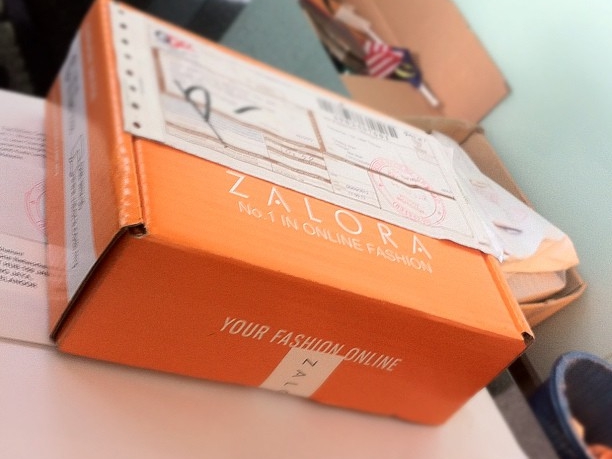The ongoing evolution of the startup factory known as Rocket Internet continues apace. Today, the Global Fashion Group, which is made up of a number of regional e-commerce fashion commerce sites — operating under the names Zalora, Dafiti, The Iconic and La Moda — originally incubated in the Berlin outfit, announced that it is planning a public listing on the Frankfurt stock exchange later this year.
GFG is expecting to raise €300 million ($336 million) by selling newly issued shares in its IPO.
The company, which is still operating at a loss, is not giving guidance on what kind of a valuation it is looking at in its IPO, but as one marker, its largest shareholder, the Swedish company Kinnevik, values its 35% stake in the company at SEK4.1 billion, which works out to about SEK11.7 billion, or $1.23 billion, for the whole company.
Part of the hope is that the funding and IPO will help bump up the value of GFG with more activity. Zalando, another of the Rocket Internet crop of e-commerce sites that has been spun out and taken public, has seen its share price nearly double since first listing in 2014. (Rocket Internet itself, which owns some 20% of GFG, has fared less well: the company’s share price is currently around one-third lower than its price at its own 2014 debut.)
The other reason for going public is to raise more money to build out its presence in emerging markets. When it was in growth mode, one of Rocket’s key strategies was building e-commerce “clones” in developing markets to tap into early growth ahead of large global brands like Amazon expanding and competing against it: it’s a set of these focused on fashion commerce that have been grouped together as the Global Fashion Group .
Emerging markets are still growing at a time when growth in more developed markets in regions like the US and Western Europe has levelled off, and this IPO is in effect also a test of whether a company built specifically around that opportunity can float on its own longer term. GFG estimates that the total value of fashion and lifestyle in its operating regions totalled €320 billion in 2018 but acknowledges that it’s still “very early days.”
“We are excited about this next step for GFG,” Christoph Barchewitz and Patrick Schmidt, the co-CEOs, said in a joint statement. “It is still very early days for fashion and lifestyle e-commerce in our markets. Today, most of our markets have less e-commerce adoption than Europe had 10 years ago. As consumer behaviour migrates towards e-commerce, GFG’s well-known consumer platforms, local teams, and fashion-specific operational infrastructure put us at the forefront of this growth opportunity. An IPO will allow us to keep investing in our end-to-end customer proposition, further strengthening our position as the leading fashion and lifestyle destination in growth markets.”
Historically, the group has had some ups and downs. One round of funding in 2016 came at a $1.1 billion valuation — but that was down on a valuation of $3.5 billion a year before. Several of the most unprofitable operations have also been closed or downsized over the years.
In the meantime, GFG is disclosing some numbers ahead of the listing:
● It notes that its active customer base is now 11.2 million, up from 8.9 million in 2016.
● Net merchandise value (NMV is the total amount of goods sold minus the value of cancelled items) grew from €1,076 million to €1,453 million between 2016 and 2018.
● Revenues were €1,156 million in 2018, up from €887 million in 2016. It projects revenues of €1.3 billion in 2019 to “make additional progress towards EBITDA break-even” (which sounds like it will continue to operate at a loss in the year).
● GFG is still operating at a net loss but individual operations are now break-even on an Adjusted EBITDA basis. These include its Latin American operations and Australia.
● For the year 2018, adjusted EBITDA margin was negative 4.3%.
● GFG expects NMV to grow by 20-23% on an organic basis to reach between €1.7 billion and €1.8 billion in 2019.
DTC (direct to consumer) has become one of the most important trends in online commerce in the last several years, with a number of brands bypassing traditional retailers and leveraging their own websites, social media and other channels to find and sell to customers.
The companies that make up the GFG have been built in part on that trend: consumers have become more open to hearing about and trusting new brands in recent years, and that has helped GFG’s companies establish themselves in the market, collectively selling more than 40 of their own fashion and lifestyle brands (and reaching economies of scale by selling them across their various markets) alongside 10,000 global, local and own fashion brands to a market of over 1 billion consumers.
Read more: https://techcrunch.com/2019/06/03/global-fashion-group-plans-to-raise-e300m-in-frankfurt-ipo/


Recent Comments